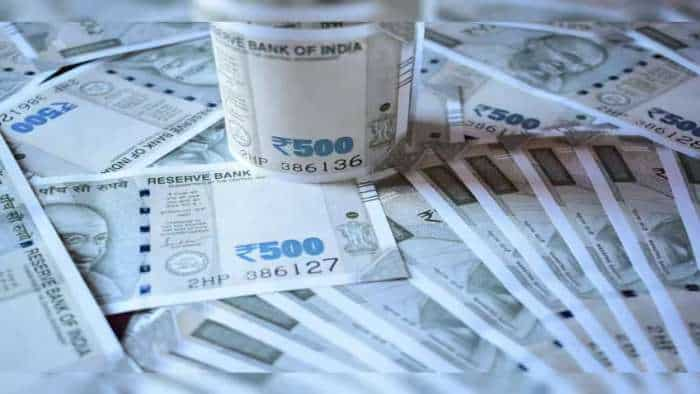5 lakh farmers to benefit from climate resilient agriculture in Tamil Nadu
The project will rehabilitate and modernize about 4,800 irrigation tanks and 477 check dams, spread across 66 sub-basins, in delivering bulk water to irrigation systems.

A loan agreement worth $318 million has been signed with World Bank to support climate resilient agriculture benefitting over 500,000 Farmers in Tamil Nadu.
According to a Finance Ministry statement, the government of India, the government of Tamil Nadu and the World Bank today signed a $318 million loan agreement for the Tamil Nadu Irrigated Agriculture Modernization Project to promote climate resilient agriculture technologies, improve water management practices, and increase market opportunities for small and marginal farmers.
About 500,000 farmers, of which a majority are small and marginal, are expected to benefit from improved and modernized tank irrigation systems.
The project will rehabilitate and modernize about 4,800 irrigation tanks and 477 check dams, spread across 66 sub-basins, in delivering bulk water to irrigation systems.
"Tamil Nadu, being a water-stressed state, continues to experience water shortages which are expected to further exacerbate in the future. Rehabilitating and modernizing irrigation tanks will improve the reliability and availability of irrigation water for farming communities, making them less prone to climatic hazards. More than 160,000 ha of currently partially irrigated lands will come into full irrigation under this project,” said Sameer Kumar Khare, Joint Secretary, Department of Economic Affairs, Ministry of Finance.
“This project will help Tamil Nadu scale up its efforts to unlock the full potential of its agriculture sector. It will support farmers improve the efficiency of water used in farming, diversify into high value crops, and produce crops that are resilient to the increasing threats of climate change. Such efforts will be a win-win for all, leading to better use of scarce water resources and raising household incomes of farmers,” said John Blomquist, programme leader and acting country director, World Bank, India.
According to the Finance Ministry statement, though significant progress has been made during the past decade in crop diversification, still there is scope for achieving a higher level. Paddy is the dominant crop occupying 34% of total cropped areas, whereas fruits and vegetables are grown on 11% and pulses and oilseeds on 14% of total cropped areas.
"By helping farmers’ access modern technologies, linking them to markets, and providing postharvest management support, the project will enable farmers to shift from a mono crop paddy system to mixed cropping including high-value crops (fruits, vegetables, and spices), pulses, oilseeds, and millets," the statement said.
The $318 million loan from the International Bank for Reconstruction and Development (IBRD) has a 5-year grace period, and a maturity of 19 years.
Get Latest Business News, Stock Market Updates and Videos; Check your tax outgo through Income Tax Calculator and save money through our Personal Finance coverage. Check Business Breaking News Live on Zee Business Twitter and Facebook. Subscribe on YouTube.
RECOMMENDED STORIES

Power of Compounding: In how many years, investors can achieve Rs 6.5 cr corpus with monthly salaries of Rs 20,000, Rs 25,000, and Rs 30,000?

SBI Green Rupee Deposit 2222 Days vs Canara Bank Green Deposit 2222 Days FD: What Rs 7 lakh and Rs 15 lakh investments will give to general and senior citizens; know here

Top 7 Sectoral Mutual Funds With Best SIP Returns in 1 Year: No. 1 scheme has converted Rs 34,567 monthly SIP investment into Rs 5,40,565; know about others

5X15X25 SIP Strategy: Is it possible to create Rs 1,64,20,369 corpus with Rs 5,000 monthly SIP investment?
07:25 PM IST










 RBI raises collateral-free agricultural loan limit to Rs 2 lakh
RBI raises collateral-free agricultural loan limit to Rs 2 lakh Rabi-season crop sowing crosses 428 lakh hectares, wheat sowing up 6.6% this year: Centre
Rabi-season crop sowing crosses 428 lakh hectares, wheat sowing up 6.6% this year: Centre Soil degradation on 30% of India's land poses threat to agriculture: Agri minister
Soil degradation on 30% of India's land poses threat to agriculture: Agri minister Agriculture ministry to host seed sector summit in Varanasi from Nov 28-30
Agriculture ministry to host seed sector summit in Varanasi from Nov 28-30 Kharif crop sowing crosses 979 lakh hectare mark; catch key takeaways from latest official data
Kharif crop sowing crosses 979 lakh hectare mark; catch key takeaways from latest official data